Last week rumors circulated in Iranian media that General Ali Nasiri, a senior commander in the IRGC’s Information Protection Unit, had been arrested. It came after a report in the New York Times asserted that several dozen arrests had been made within the Ministry of Defense’s missile development program, on suspicion of leaking classified information. Some linked the alleged arrest of Nasiri to the dismissal of Hossein Taeb as head of the IRGC’s Intelligence Organization the previous week.
Tasnim News Agency, which is affiliated with the Revolutionary Guards, wrote that the claims regarding Nasiri were “a repeat of a three-year-old lie”. True or not, notably this is not the first time reports have surfaced of Nasiri’s arrest during his tenure at the IRGC.
A Cascade of Reported Arrests in 2019
In April 2019, Nasiri was replaced as head of security by General Fathollah Jamiri. A few days after the handover, a rumor spread through the ranks that the former had been taken into custody. Nasiri himself denied the reports, insisting that his dismissal was part of a routine organizational reshuffling. He was then present at the induction ceremony of General Hossein Salami as commander-in-chief on April 24, seemingly putting paid to the allegations.
The real reason for Nasiri’s removal from that position remains unknown. The IRGC’s security division is responsible for the protection of some high-ranking officials, with the exception of the Supreme Leader, through the Ansar Al-Mahdi Protection Corps, as well as for security at airports and other sensitive sites around the country.
In Iran, the year 2019 – 1398 in the Persian calendar – is widely associated with the nationwide protests that racked the country that November. But it was also marked by numerous reports that senior IRGC commanders had either been arrested or fled the country. Aside from Nasiri, other well-known names that circulated at the time were Mostafa Rabiei, a former deputy commander of the IRGC’s Inspection Office, and Mohammad Tolaie, former head of the IRGC’s Office for Strategic Affairs, who was alleged to have been detained on trying to leave the country in connection with Israel’s 2018 theft of documents related to the nuclear program.
So rife was the speculation at the time that the IRGC Spokesman Ramezan Sharif was forced to step in, issuing a statement on June 11, 2019, denying any such incidents had taken place. The IRGC’s own Fars News Agency went further, saying there was no such thing as the “Office for Strategic Affairs”.
The denials did little to stem the tide. The very next month, Radio Israel reported that Asghar Mir Jafari, a former head of the IRGC’s Protection Unit who had moved to the Ministry of Information’s security division a year earlier, had also been arrested.
A Basij Commander’s Five-Year Nightmare
The IRGC was at the center of a similar wave of reports in 2015. That year, it was claimed that the head of the Israel desk at the Intelligence Organization (IRGC-IO), who was also the chief of staff of Mohammad Reza Naghdi, commander of the paramilitary Basij, had been arrested and charged with spying for Israel.
Others claimed that these were two separate people: the former had merely retired, but Naghdi’s chief of staff had indeed been detained. Still another Iranian media report stated the reverse.
Like so many other cases, the matter was never definitively cleared up. But the story took on a half-life of its own. It was reported at the time that the arrest(s) had been linked to a group of Israeli spies discovered within the ranks of Lebanese Hezbollah the previous year. Reports said one of the arrested parties was a highly trusted official named Mohammad Shurbeh, part of Hassan Nasrallah’s personal security detail.
Government officials under Hassan Rouhani – including his deputy for parliamentary affairs, Majid Ansari – would later implicitly claim that the story had, at least partially, been true and the still-unnamed spy at Naghdi’s office had been executed.
In May 2016, MPs were debating whether the IRGC-IO should be added to a list of “sensitive agencies” whose employees all required background checks. “Haven’t we seen infiltrations in the same institutions and agencies we are now discussing?” Ansari said. “Somebody there breached security and was executed. This happened just last year.”
Shortly after that exchange, ex-president Mahmoud Ahmadinejad also weighed in. “How come the top person responsible for controlling Israeli spies in Iran turned out to be an Israeli spy himself?” he said. “How is it possible that only one person… is responsible for Israeli infiltration into Iran, and carries out so many operations in the country all by himself, without the support of a team?”
Years later in 2018, the affair was revived after a car carrying Foreign Minister Mohammad Javad Zarif came under attack on campus at Tehran’s Amir Kabir University. Abdollah Ramezanzadeh, the spokesman for ex-president Mohammad Khatami, declared: “Those who attacked Zarif at the university belong to the same organization [referring to the Basij] that had an Israeli spy in the staff of its president.”
Then in 2019 a reformist politician and then-deputy speaker of parliament named Behzad Nabavi piped up on the case. “At the office of a certain commander,” he said, “two Israeli spies were identified… One of them was executed.” At the time Mohammad Reza Naghdi, presumably now desperate to be rid of the whole affair, announced that he was going to sue Nabavi.
Other Spying Allegations
Apart from the commanders, the past half-decade has also been marked by numerous reports of individuals in the IRGC rank and file being arrested for passing on information. In most cases the parties were not named, making the stories impossible to verify.
In 2018, the websites Kaleme and Neday-e Azadi reported that 30 members of the IRGC had arrived on the wards at Evin Prison, all charged with espionage. One of them was said to have been receiving around $60,000 a year to provide Israel with the layouts of and information on all IRGC bases in Tehran. Another one, also a Revolutionary Guard, had reportedly received $70,000 from Israel. At least one of the 30 was said to have already been sentenced to 10 years in jail for spying for Israel.
Kaleme also reported that a couple who were both members of the top echelons of the IRGC, with relatives in the IRGC-IO, had been arrested and charged with spying for American intelligence services.
In 2019 it was also reported that Jamal (Siavash) Haji Zavareh, 47, an employee of IRGC’s Aerospace Force, had been hanged after being convicted of spying for the United States.
visit the accountability section
In this section of Iran Wire, you can contact the officials and launch your campaign for various problems




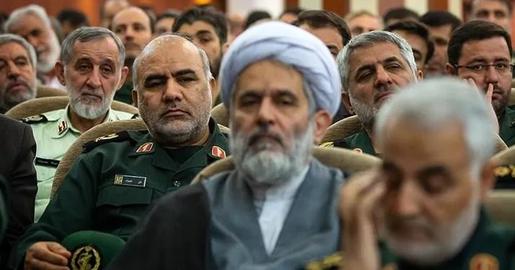
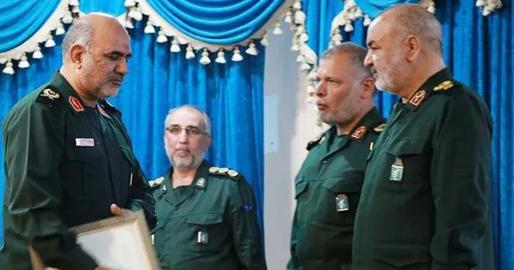
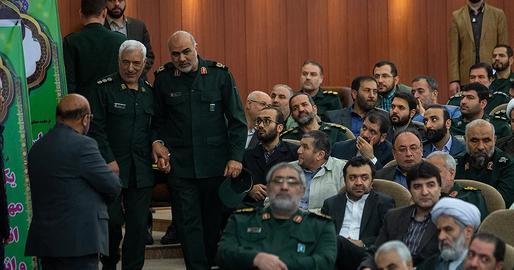





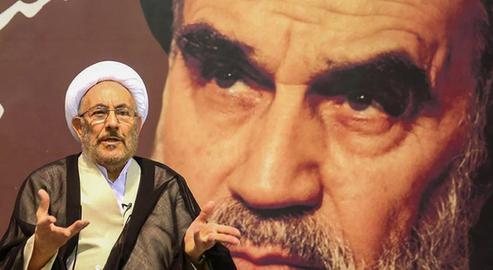


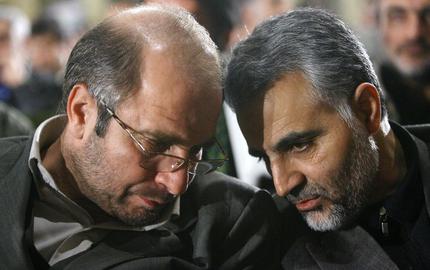











comments